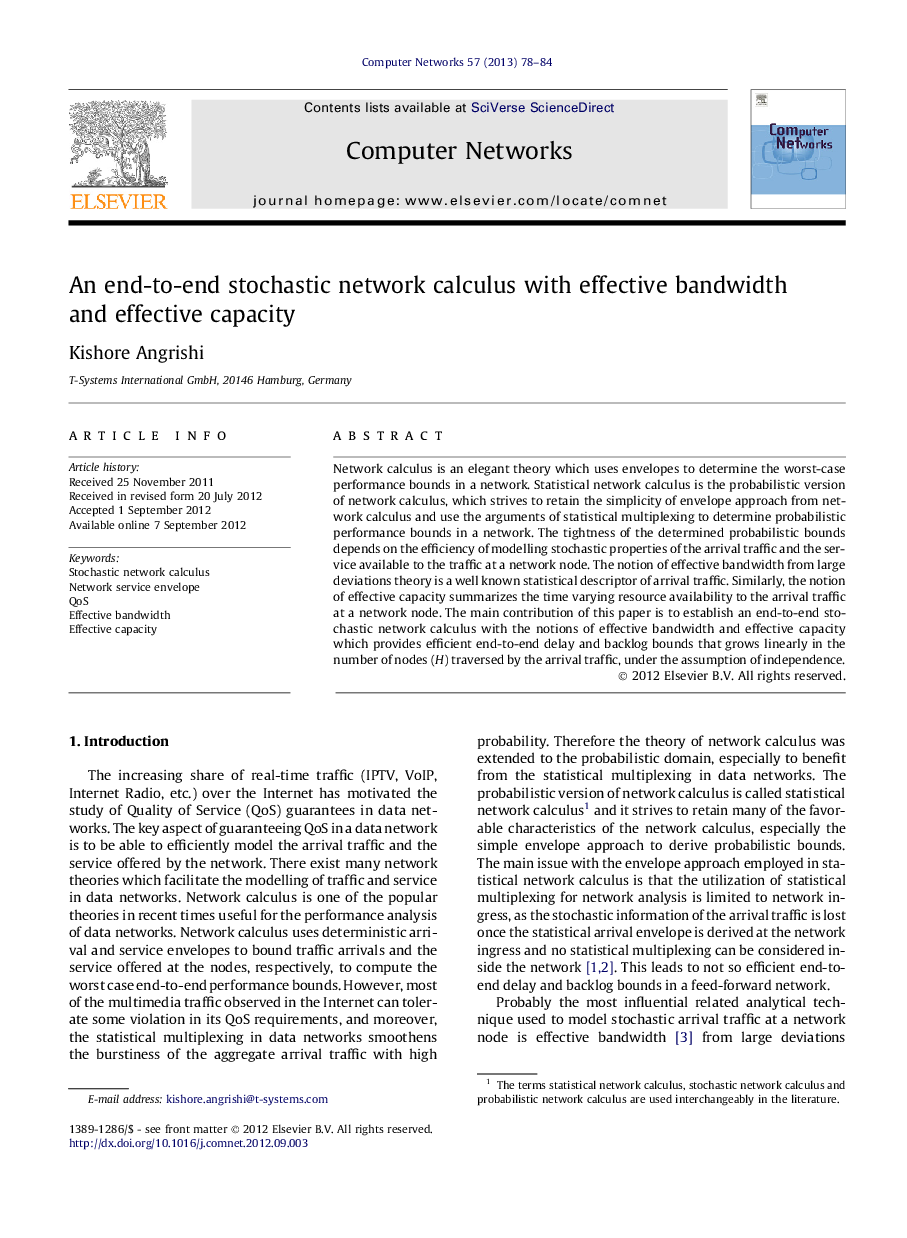| Article ID | Journal | Published Year | Pages | File Type |
|---|---|---|---|---|
| 451958 | Computer Networks | 2013 | 7 Pages |
Network calculus is an elegant theory which uses envelopes to determine the worst-case performance bounds in a network. Statistical network calculus is the probabilistic version of network calculus, which strives to retain the simplicity of envelope approach from network calculus and use the arguments of statistical multiplexing to determine probabilistic performance bounds in a network. The tightness of the determined probabilistic bounds depends on the efficiency of modelling stochastic properties of the arrival traffic and the service available to the traffic at a network node. The notion of effective bandwidth from large deviations theory is a well known statistical descriptor of arrival traffic. Similarly, the notion of effective capacity summarizes the time varying resource availability to the arrival traffic at a network node. The main contribution of this paper is to establish an end-to-end stochastic network calculus with the notions of effective bandwidth and effective capacity which provides efficient end-to-end delay and backlog bounds that grows linearly in the number of nodes (H) traversed by the arrival traffic, under the assumption of independence.
